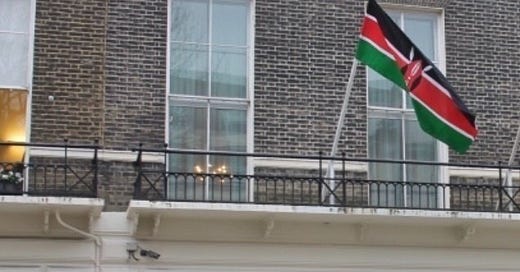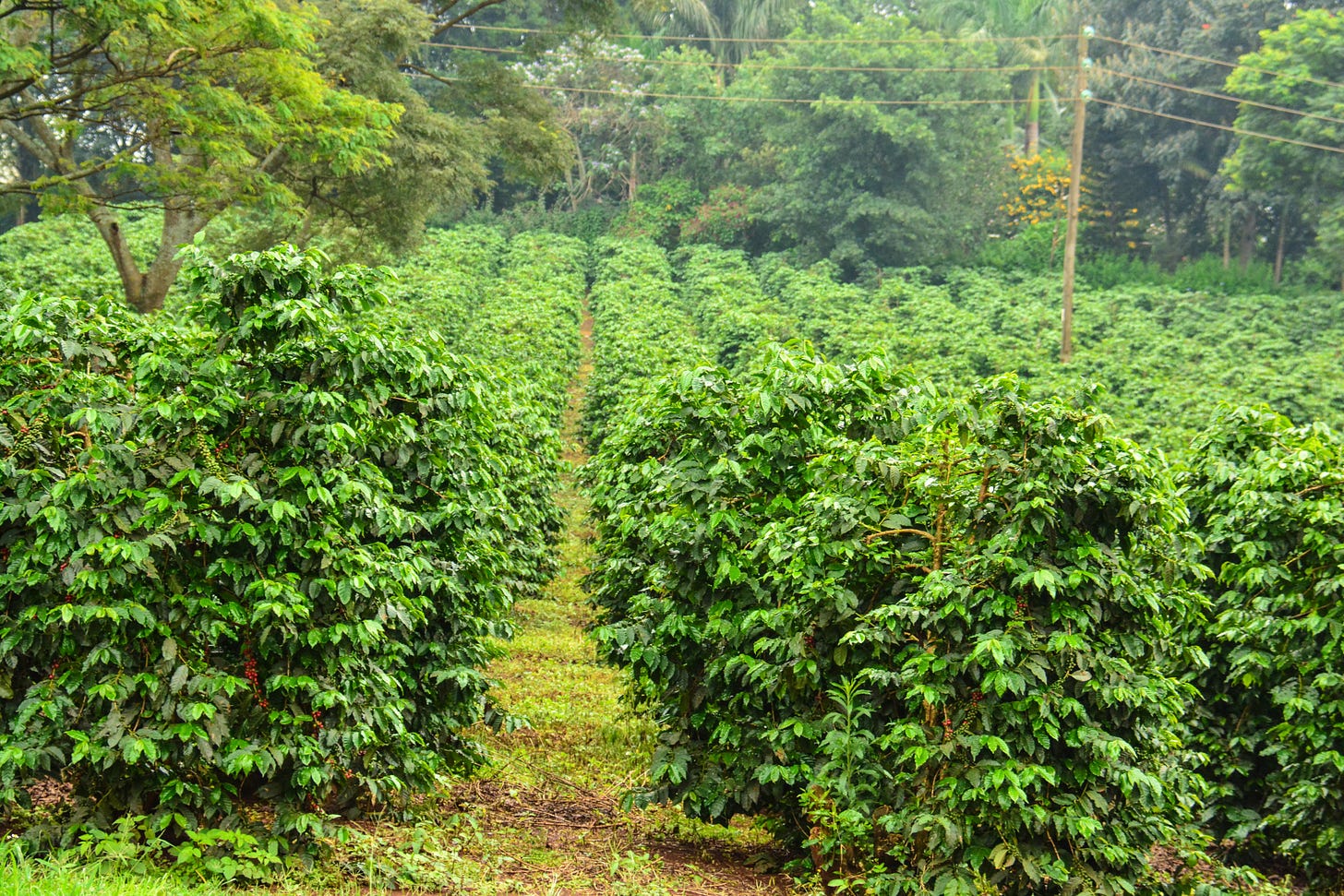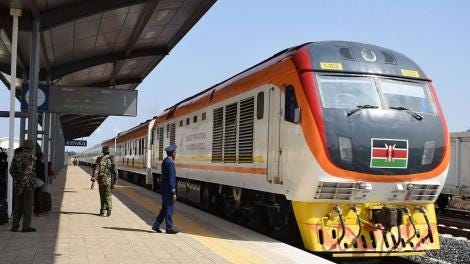Good morning. Last week, Nakuru was awarded a city charter, making it the fourth city in Kenya. The president also launched the revamped Nakuru-Kisumu railway line.
Kenya’s response to the Omicron variant
While some countries have moved to impose travel restrictions following the discovery of the Omicron variant in South Africa, President Uhuru Kenyatta announced that Kenya had no immediate plans to lock down the country again despite the new Covid-19 variant scare.
Kenya’s plan ?
An accelerated vaccination plan in the coming months to preclude the need for further drastic measures such as lockdowns and a night curfew.
A 10-day vaccination campaign from 26 November with the goal of vaccinating 10 million people by the end of 2021 and 27.2 million adults by end of June next year.
To begin manufacturing Covid-19 vaccines locally in 2022. Kenya Biovax Limited has been established for this purpose.
CAPITAL MARKETS
1. New rules on social impact reporting for companies
The Nairobi Stock Exchange published its ESG (Environmental, Social, and Governance) Disclosures Guidance manual on 29 November. This will align the information reported by Listed companies in Kenya to international standards.
As per the guidance manual,
ESG reporting shall be integrated into the normal annual reports or in separate sustainability reports.
Listed companies have a grace period of one year from the issuance of the guidelines to interact and familiarise themselves with the ESG reporting steps.
2. MTN Uganda’s undersubscribed Initial Public Offering
According to MTN Uganda, only 2.9 billion shares out of the 4.5 billion shares offered were allotted. This means that only 64% of the shares in MTN Uganda’s initial public offering was bought by investors.
more details of MTN Uganda’s IPO
The IPO raised 535.9 Billon Uganda shillings (Ksh 16.94 billion) against a targeted 895.6 Billion Uganda shillings.
Kenya’s National Social Security Fund (NSSF) bought 39.1 million shares.
MTN Uganda shares will start trading on the Nairobi Securities Exchange (NSE) on December 7.
ECONOMY
The Cost of sending Money to Kenya
Data from the Central Bank of Kenya revealed that Kenyans living abroad spend an average of Sh2.4 billion per month in costs when sending money home to their relatives, with those using banks to remit cash paying more compared to the ones utilising digital channels.
In the 10 months to October 2021, Kenyans living abroad sent home an average of Ksh 34.3 billion.
The cost of remittances to Kenya is averaging at about 7% which is above the recommended 3%- Central Bank of Kenya
World bank report on Global remittances
African remittance costs are higher than other regions of the globe because of small quantities of formal flows.
Sub-Saharan Africa’s average cost of remittances is 8% (almost double that of Asia)
Remittance costs are higher when remittances are sent through banks than through digital channels or money transmitters offering cash-to-cash services.
FOREIGN AFFAIRS
Parliamentary advisory team urges Kenya to slash the number of Embassies
The Parliament Budget Office (PBO) made a recommendation that Kenya should reduce the number of embassies and hire foreigners for the country’s diplomacy work in order to cut down on costs of rent and hosting diplomats abroad.
Kenya has 61 missions including consulates and liaison offices worldwide.
Earlier this year, a report by the Auditor general highlighted that Kenyan diplomats were renting homes and office space in some of the world’s pricey cities like New York, London &Washington DC because the embassies are in a deplorable state.
As a result, The Ministry of Foreign Affairs requested at least Sh5 billion annually for 15 years to buy properties, which will cut the amount of money spent on rent by foreign missions.
However, the Parliament Budget office is skeptical on Kenya’s priority of maintaining the foreign missions at a time Kenya is struggling with huge debt payments and weaker revenues.
Farmers in Kiambu county turn to herbs instead of coffee
With the growing population and urbanisation, the available land for farming is shrinking because the real-estate boom in Kenya continues to gobble up coffee farms especially in Kiambu.
This has called for innovative ways of farming in order to make a meaningful income. More farmers in Kiambu are abandoning coffee and tea farming for herbs.
why ?
As reported by Business Daily, farmers growing herbs and spices in Kiambu have reported increased revenues as from 2020.
Herbs are easier to grow as they require less labor and less acreage of land compared to coffee or tea.
(revenue from a quarter of an acre of herbs are more than what a farmer can get from 3.5 acres of coffee. - Business daily)
TRANSPORT
Passenger railway to Kisumu resumes
Passengers travelling from Mombasa to Kisumu will now start travelling day and night in a seamless train service that links the standard gauge railway (SGR) line to the refurbished meter gauge track.
Kenya railways aims to exploit the increased demand of passengers travelling to their rural homes for the December holidays.
How the commute will work
The train from Kisumu on the meter gauge rail will terminate its journey at the Naivasha station.
Passengers will then be transferred to the SGR (Standard Gauge Railway) via a new 23.5-km link line to Longonot.
OTHER CONVERSATIONSTARTERS OF THIS WEEK
The Voluntary Tax Disclosure Programme (VTDP) - 31st December 2021 is the deadline to enjoy 100% relief on penalties and interest on taxes disclosed through the Voluntary Tax Disclosure Programme (VTDP) by Kenya Revenue Authority.
Banks launch sign language training platform - The Kenya Bankers Association (KBA) has set up an online platform (eLimu) to train the sector’s workers on bank-environment sign language to help improve access to financial services for the deaf.
Tanzania to launch Central Bank Digital Currency - Tanzania’s central bank announced its intentions and preparations to launch its central bank digital currency (CBDC).
There is an increasing adoption of cryptocurrencies with countries launching Central Bank Digital Currencies.
KCB Cancels acquisition of Bank in Tanzania - Kenya Commercial Bank (KCB) Group has cancelled its plan to acquire a 100% stake in African Banking Corporation Tanzania Limited (BancABC) from London-listed Atlas Mara Limited because of regulatory challenges.
regulatory approvals for the acquisition had not been received within the prescribed timeframe specified in the Agreement hence the termination.
Inflation rate - Kenya’s November inflation rate slowed down to 5.8% from 6.45% in October. This is the lowest it has been since April. The drop in inflation was driven by a decrease in prices of commodities such as food and non-alcoholic drinks.
Enjoyed this weeks issue,







